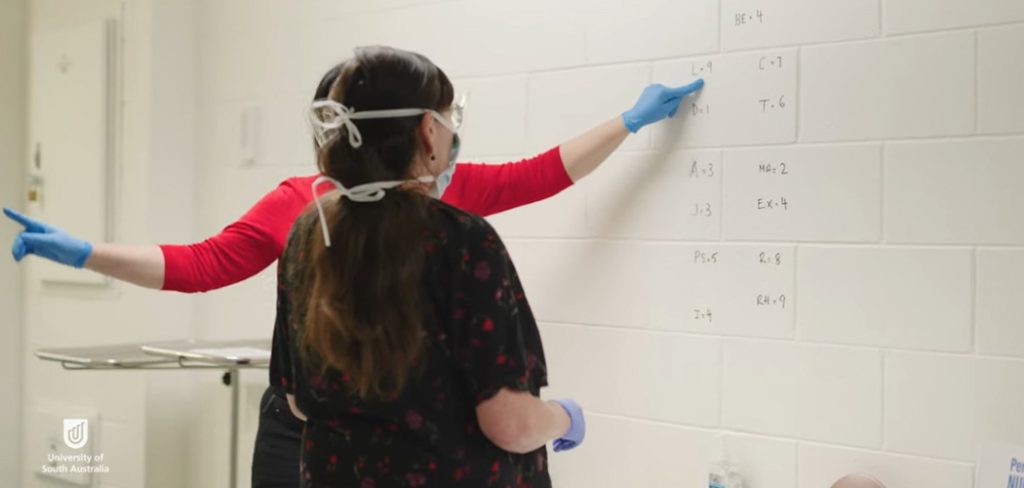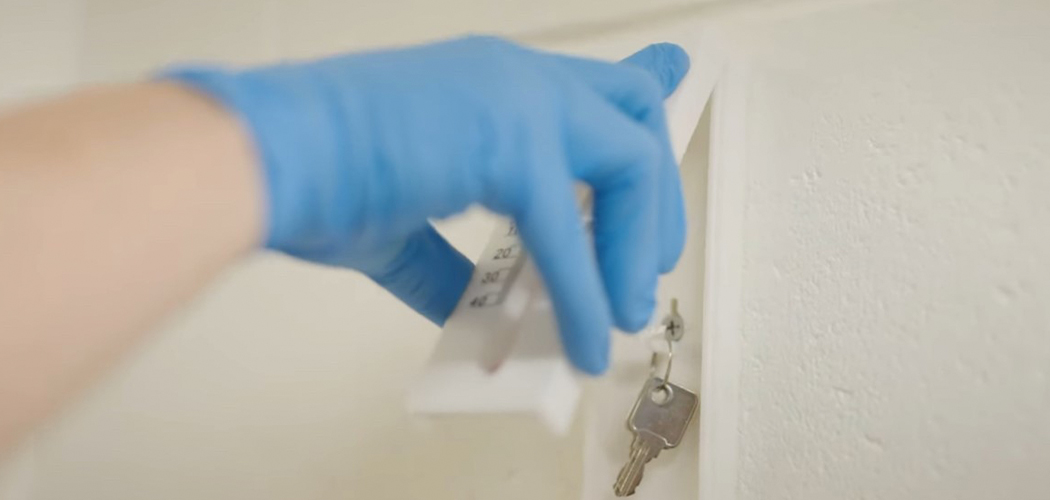“It’s all a bit of a mystery, and that’s the challenge,” explains University of South Australia (UniSA) nursing lecturer Dr Michelle Freeling, of the immersive escape room experience designed to help postgraduate perioperative nurses sharpen their skills.
An escape room typically involves a group of people being locked in a room and having to solve a series of puzzles and riddles using clues, hints, and strategy to complete the tasks and ultimately escape within a set time limit. UniSA’s adapted educational experience, ‘Escape from the Operating Room’, sees students enter as a ‘theatre team’ and having to crack six challenges, each related to aspects of their clinical practice that align with Australian College of Perioperative Nurse standards, within 45 minutes.
Dr Freeling, who designed the escape room, says the unique experience offers perioperative nurses the opportunity to improve their skills while working as part of a team and under pressure. First, students must put together a puzzle to complete a medication chart, identify the patient’s allergy, and find that information, select the correct medication for the conditions, choose the correct process, and work out a medication calculation.
“It’s designed to put them [students] through a series of challenges that they’ve learned in their coursework but gamify it and make it really engaging [to] create an immersive environment for them to be able to apply that knowledge,” Dr Freeling says.
“It’s important to create really engaging, fun, ways of learning, particularly because the newer generations of nurses who participate in postgraduate education, or even undergraduate education, their learning expectations are different. When we are innovative as educators, we create better education.”
According to Dr Freeling, escape rooms are used internationally across healthcare education and are known to improve students’ understanding of complex nursing concepts, as well as their ability to prioritise, build resilience, and develop coping strategies.
“Healthcare environments can be stressful, especially for new nurses. Escape rooms simulate high-pressure situations, so they enable students to practice under stress, but within a secure and controlled low-stakes environment,” she says.
“They can also build team communication, coordination and confidence, all of which are vital for positive patient outcomes and interprofessional collaboration.
“The hands-on nature of an escape room allows students to apply concepts that they have learnt in online lessons, reinforcing their knowledge, and practicing them in a ‘real’ scenario.”

The escape room experience is part of UniSA’s Perioperative Nursing course and part of the Clinical Specialisation Program, developed through a partnership with SA Health. The UniSA nursing team is hoping to expand the program across other nursing areas both at the university and across the public and private sector.
“It’s important to be sharing these resources and working together with industry and other universities to create something really new and fun for students,” says Dr Freeling.
“We’re hoping that we can apply the escape room experience to nurses and other health professionals working in industry with our industry partners so they can come in here and learn in a really fun and engaging way and improve patient safety.”








